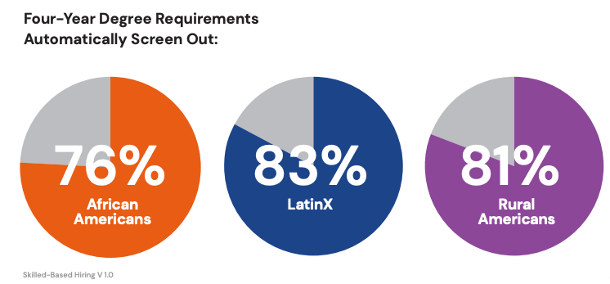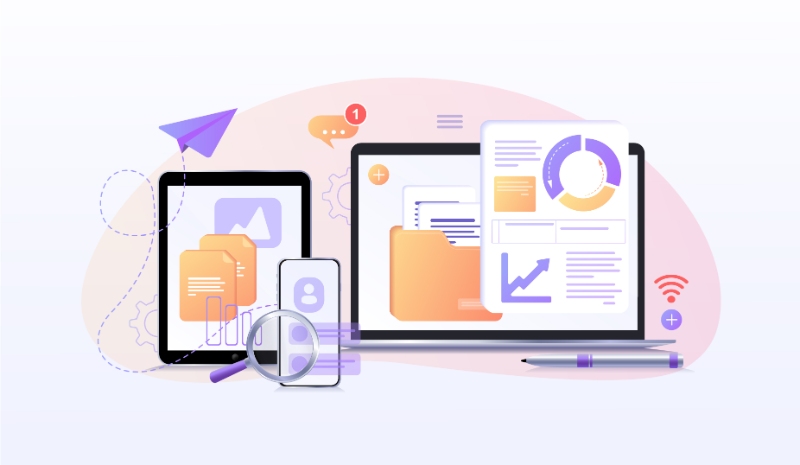What is Skills-Based Hiring?
Skills-based hiring is a method that focuses on a candidate’s skills rather than their background. According to Opportunity@Work, four-year degree requirements automatically screen out 76 percent of African Americans, 83 percent of LatinX, and 81 percent of rural Americans.
By broadly enforcing certain baseline requirements, employers may unintentionally hinder their ability to meet their growth goals and attract qualified, diverse, and talented employees.

Implementing skills-based hiring practices allows companies to fill open positions with more diverse talent by increasing the pool of candidates they consider for employment.
How to Implement Skills-Based Hiring
Evaluate Your Current Requirements
First, reflect on your organization’s hiring policies. Do you have policies that require a four-year degree for certain positions or company-wide? Which positions require four-year degrees or other minimum requirements and why?
Try making a list of any positions within your organization that require a four-year degree and ask yourself and your team why the requirement is in place. If the answer is unclear, try removing the requirement altogether (be sure to update applicant tracking system criteria accordingly) to see firsthand how your number of candidates will grow.
Leverage Free Resources for Employers
Learn from Skillful’s free resources for employers, which can help facilitate the transition to skills-based hiring practices, such as skills-based job posting generators and resources to reduce bias in the interview and selection process.
About Workmorphis
Workmorphis offers innovative workforce pipeline strategies to help you attract professionals from a variety of backgrounds, cultures, and experiences at the volume and frequency needed to support continued growth. Contact us at 877.999.7717 or info@workmorphis.com to learn how we can help you with a skills-based hiring plan.
Meet the Author
Emily Fabiano is the founder of Workmorphis, a cross-sector workforce consultancy helping organizations build a more resilient workforce to thrive in a changing economy. Fabiano has deep experience in workforce transformation at the government level, working at the cross section of workforce strategy, economic development, and public policy. With a keen understanding of the unique challenges facing today’s and tomorrow’s workforce and the ability to communicate across sectors, Fabiano brings a new level of understanding and collaboration required to connect industry and education and prepare people for jobs.


